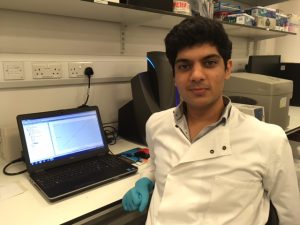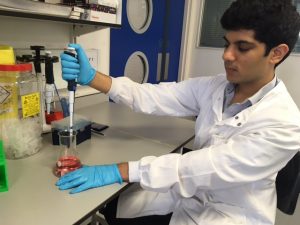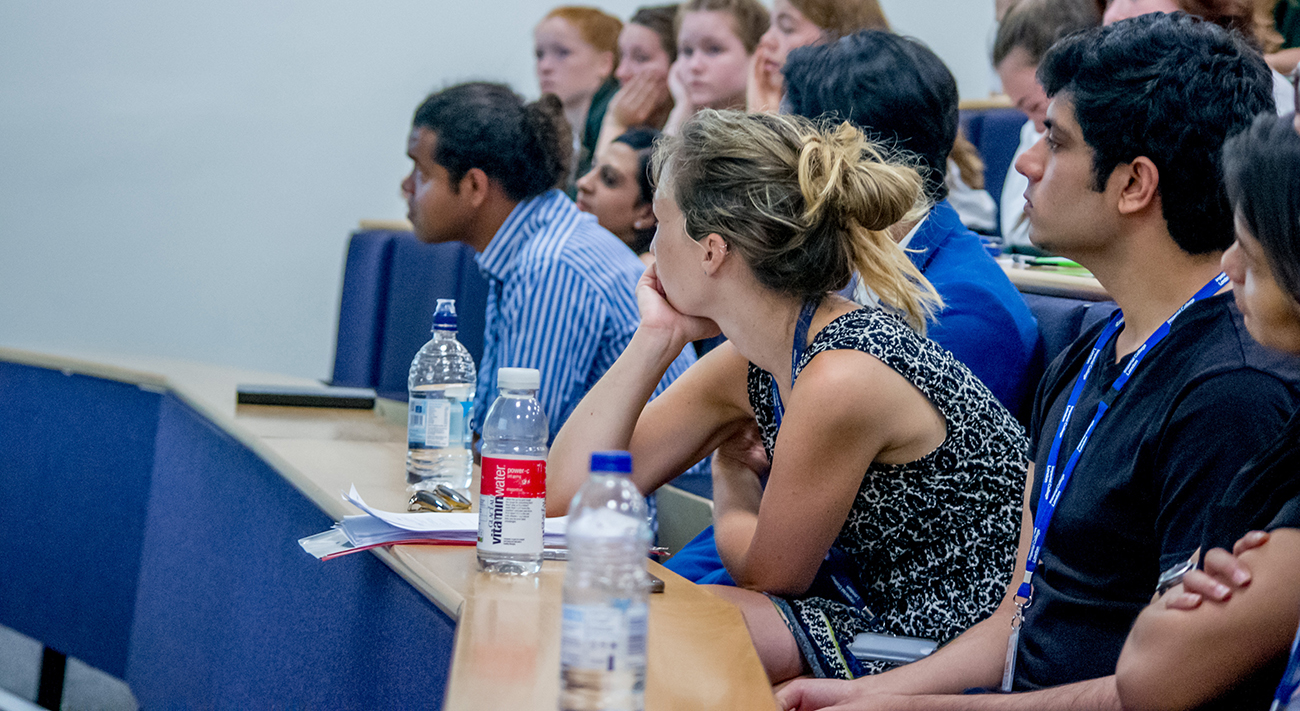
Here, Vinay Mandagere a medical student, reflects on his journey through medical school, from initial rejection to researching TB.
It was extremely challenging for me to stare back at the four rejections that faced me. Four rejections from four separate medical schools. Four independent reviewers telling me I was not to be a doctor. I had to endure seemingly unending encouragements and sympathies from friends and family. Their attempts were well-meaning, but often repetitive. My particular favourite was “I believe Edward Jenner didn’t get into medical school the first time round”. This, of course, was a complete fabrication. I think I always had this naïve cockiness about me, an artless assumption that I had the necessary experiences to stroll into medical school. Perhaps rejection had a subduing effect on my ego, though, I probably would presume most of those who know me would thoroughly disagree.
Nevertheless, it occurred to me that I had a year to convince the doctors of now that I could be a doctor of the future. But then I thought again. I had an entire year to do what I wanted. I found myself avoiding medical work of any sort, and take up a job in a bakery. I normally stop here when I want to impress people, to give the impression that I mastered the art of conjuring delicious, enticing pastries. In fact, it is due to my semi-duplicitous nature that many people still think of me as a great baker. But I’m not. In reality, my primary role was to serve customers, clean and wash up (as well as outline the difference between spelt bread and gluten-free bread: a distinction I still don’t understand to this day). It was an enjoyable job, and it provided me with some money to fuel some travelling later on. Moreover, I had the blessing of taking home two full bags of artisan breads untouched by the day’s customers — a perk which became more and more hedonistic as the year went on.
Suddenly, one day, when the handyman had come by to fix the washing machine, I received an e-mail from the University of Bristol, informing me that they’d like to invite me for an interview. My mother was of course ecstatic. She also viewed the handyman as some sort of good omen, since he was also around when my brother received his offer from university. The world is certainly a strange place. My post-interview offer came a few weeks later, and after confirmation, I celebrated by taking a month-long trip around Europe; a tour which consisted of me travelling from one city to the other with the sole purpose of eating their delicacies.
Two years into medical school and I found that there was something missing. Medicine, it seemed, was a previously defined bank of extensive knowledge, ready to be engorged by the student, and then spat out in the examinations. Overall, I found that there was little thinking or investigation going on in medical school. Of course I knew that I was still in early days, and the later clinical phase was known to be the more glamorous aspect of my degree.

Nevertheless, it was the current lack of thinking which made me want to pursue academic research as an option for the future. With my destination as London, I searched for potential research placements over my summer. It was then when I came across the Tuberculosis Research Centre (part of the NIHR Health Protection Research Unit in Respiratory Infections)- a group whose core principle was to use scientific discoveries to enable practical solutions to tackling tuberculosis (TB). I actually knew very little about TB, in fact my interest in TB was more historical than scientific. The disease had a significant cultural impact in the nineteenth century: it was the disease of the romantics. It was once said that “Chopin coughs with infinite grace”. This disease, now considered the scourge of humanity, was then associated with the artistic elite. It had a profound impact on the culture, featuring in operas such as La Traviata and La Bohème. In fact, the poet Lord Byron said “I should like to die from consumption” — a term which was previously used due to the illness’ effect of weight loss.
 The landscape of TB today is frightfully different. With 1.4 million deaths per year, it is one of the top 10 causes of death globally. A particular challenge is the diagnosis of TB. Interferon-gamma release assays (IGRAs) — one of the last major advancement in TB diagnostics — was developed by Professor Ajit Lalvani, head of the TB Research Centre. This method measures the body’s response to the bacteria by detecting a protein called Interferon-gamma after stimulation of cells from the blood. Although this test has vastly improved the diagnosis of infection, it lacks sensitivity, and produces some false negatives. Therefore, in order to improve the sensitivity, I am working on a project which measures other proteins which may also respond to the TB bacteria. In combination with the current test, it could ensure that more individuals with TB disease are detected, reducing the rate of those false negatives.
The landscape of TB today is frightfully different. With 1.4 million deaths per year, it is one of the top 10 causes of death globally. A particular challenge is the diagnosis of TB. Interferon-gamma release assays (IGRAs) — one of the last major advancement in TB diagnostics — was developed by Professor Ajit Lalvani, head of the TB Research Centre. This method measures the body’s response to the bacteria by detecting a protein called Interferon-gamma after stimulation of cells from the blood. Although this test has vastly improved the diagnosis of infection, it lacks sensitivity, and produces some false negatives. Therefore, in order to improve the sensitivity, I am working on a project which measures other proteins which may also respond to the TB bacteria. In combination with the current test, it could ensure that more individuals with TB disease are detected, reducing the rate of those false negatives.

My placement with the TB Research Centre has been an unyielding exercise in thinking. I have been forced to think about my experiment, optimise it, critique it and most importantly, understand its purpose. My experience has taught me that research is a struggle. You won’t always get the results you want, but it is an unrelenting analysis of the nature of the world, and our methods of studying it. I’m still happy with my choice to eventually become a doctor, but I think my placement has diversified the way I look at medicine. Moreover, my placement has been as enjoyable as my days in the bakery. And with “Breakfast Club” every Friday morning, perhaps it isn’t that different.
Vinay Mandagere (@vinaymandagere) is a medical student at the University of Bristol. He is currently doing a UROP (Undergraduate Research Opportunities Placement) funded by the Pathological Society of Great Britain and Ireland with the TB Research Centre, part of NHLI, Imperial College. In September, he is studying for an intercalated BA in Medical Humanities.
The research of the TB Research group (@HPRURespiratory) is funded by the VANTDET project (NIHR EME stream).